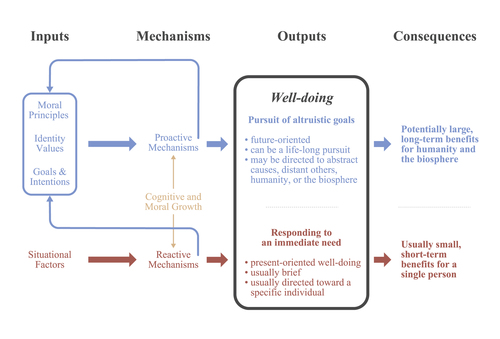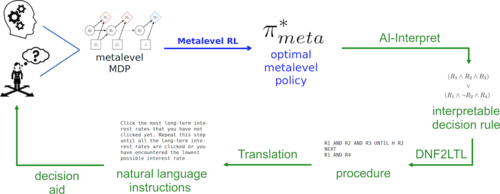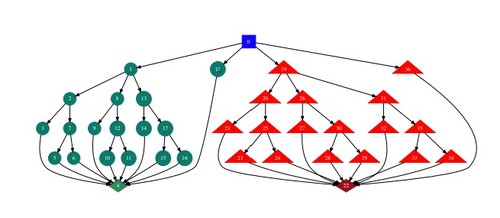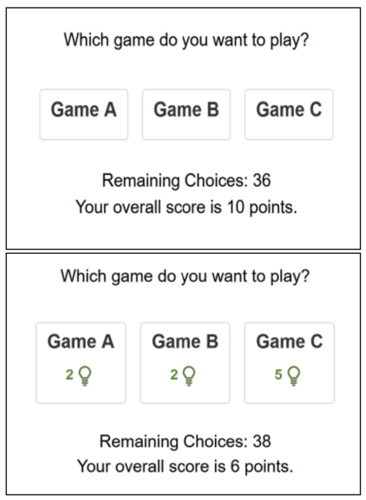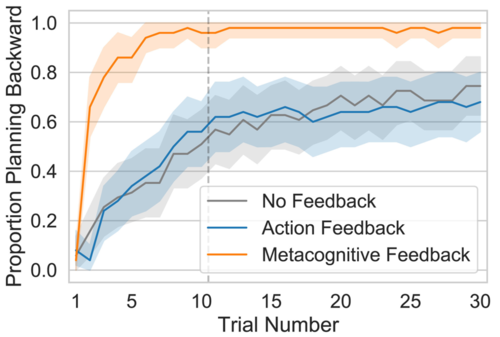2022
Wirzberger, M., Lado, A., Prentice, M., Oreshnikov, I., Passy, J., Stock, A., Lieder, F.
Can we improve self-regulation during computer-based work with optimal feedback?
Behaviour & Information Technology, November 2022 (article) Submitted
He, R., Lieder, F.
Learning-induced changes in people’s planning strategies
November 2022 (article) Submitted
Lieder, F., Prentice, M., Corwin-Renner, E.
An interdisciplinary synthesis of research on understanding and promoting well-doing
Social and Personality Psychology Compass, 16(9), September 2022 (article)
Becker, F., Skirzyński, J., van Opheusden, B., Lieder, F.
Boosting human decision-making with AI-generated decision aids
Computational Brain & Behavior, 5(4):467-490, July 2022 (article)
Mehta, A., Jain, Y. R., Kemtur, A., Stojcheski, J., Consul, S., Tosic, M., Lieder, F.
Leveraging machine learning to automatically derive robust decision strategies from imperfect models of the real world
Computational Brain & Behavior, 5, pages: 343-377, Springer Nature, June 2022 (article)
Consul, S., Heindrich, L., Stojcheski, J., Lieder, F.
Improving Human Decision-Making by Discovering Efficient Strategies for Hierarchical Planning
Computational Brain & Behavior, 5, pages: 185-216, Springer, 2022 (article)
Callaway, F., Opheusden, B. V., Gul, S., Das, P., Krueger, P. M., Griffiths, T. L., Lieder, F.
Rational use of cognitive resources in human planning
Nature Human Behaviour, 6, pages: 1112-1125, April 2022 (article)
Pauly, R., Heindrich, L., Amo, V., Lieder, F.
What to learn next? Aligning gamification rewards to long-term goals using reinforcement learning
March 2022 (article) Accepted
Callaway, F., Jain, Y. R., Opheusden, B. V., Das, P., Iwama, G., Gul, S., Krueger, P. M., Becker, F., Griffiths, T. L., Lieder, F.
Leveraging artificial intelligence to improve people’s planning strategies
119(12), PNAS, March 2022 (article)
Krueger, P., Callaway, F., Gul, S., Griffiths, T., Lieder, F.
Discovering Rational Heuristics for Risky Choice
PsyArXiv Preprints, January 2022 (article) Submitted


